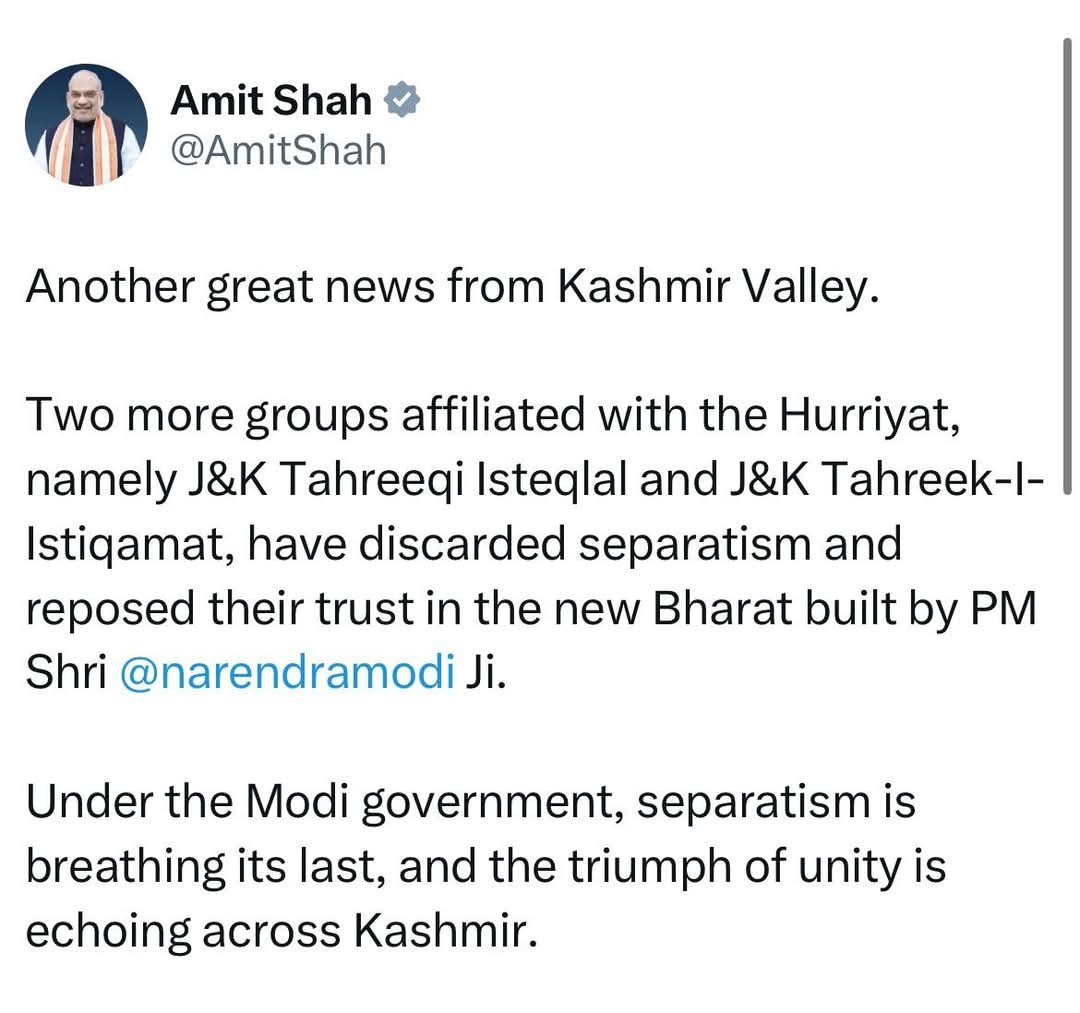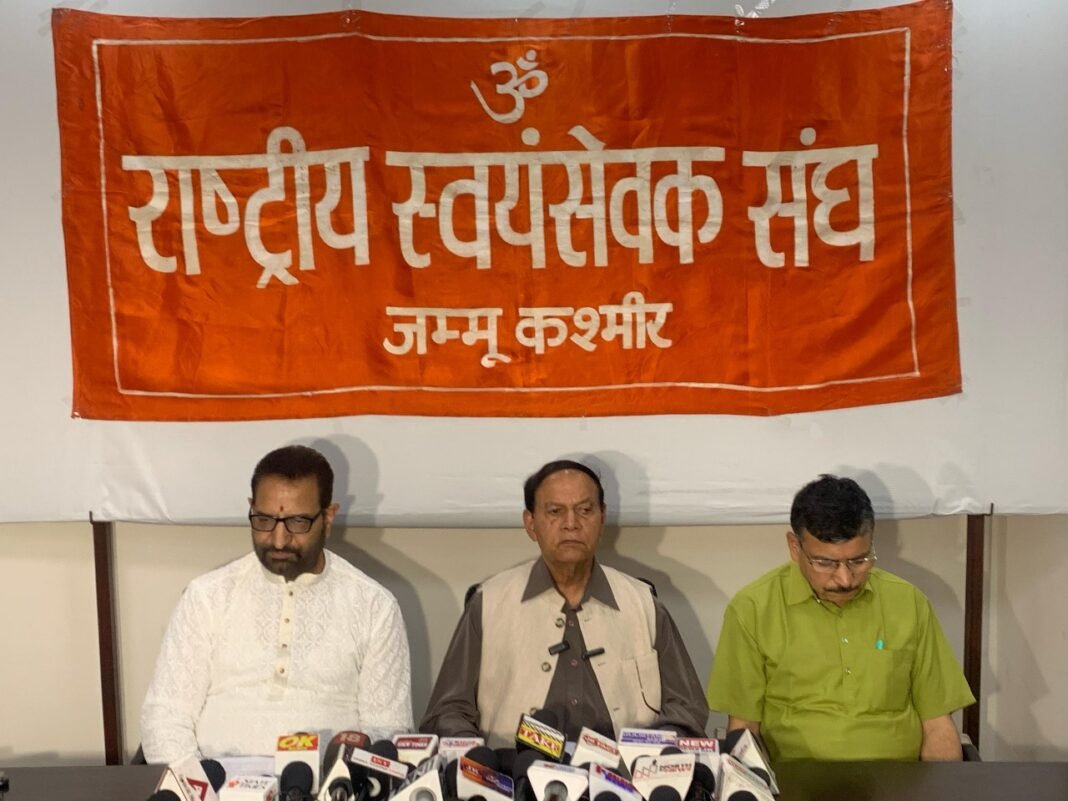Diplomat Correspondent
Srinagar, (DD)– In a significant political shift, two more groups from the All Parties Hurriyat Conference (APHC)—Tehreek-e-Istiqlal and Tehreek-e-Isteqamat—have officially severed ties with separatist ideology in Jammu and Kashmir. Union Home Minister Amit Shah took to social media platform X to confirm the development, calling it a step towards a “peaceful and unified Bharat.”
This move comes after several other Hurriyat constituents, including the Jammu and Kashmir People’s Movement (JKPM) and Jammu and Kashmir Democratic Political Movement (JKDPM), also distanced themselves from the separatist camp earlier this year.
Ghulam Nabi Sofi, leader of Jammu and Kashmir Tehreek-e-Istiqlal, publicly announced his disassociation, saying, “I had already distanced myself from separatist ideology. Today, I officially renounce it. I am a proud citizen of India and believe in the supremacy of the Indian Constitution.”
Similarly, Muhammad Sharief Sartaj, chairman of Jammu and Kashmir Freedom Movement (JKFM), declared his commitment to national unity. “I no longer associate with Hurriyat or any separatist ideology. My focus is on strengthening peace and development in Jammu and Kashmir as part of India,” he said.
Welcoming the move, Amit Shah asserted that “Separatism has become history in Kashmir,” crediting the Modi government’s policies for the shift. “The unifying vision of PM Modi has tossed separatism out of Jammu and Kashmir. I urge others to abandon separatist ideology and contribute to the nation’s progress,” Shah posted on X.
The Hurriyat, once seen as a powerful voice for separatist politics in Kashmir, has seen a steady decline in influence, especially after 2021, when key leaders were arrested or distanced themselves from the movement. Experts believe that the growing realization among former Hurriyat constituents about the futility of separatism and the economic progress under Indian governance is leading to these breakaways.
With more separatist groups denouncing their past stance, the political landscape of Jammu and Kashmir appears to be shifting towards mainstream integration. The question remains—will more groups follow suit?(DD)




